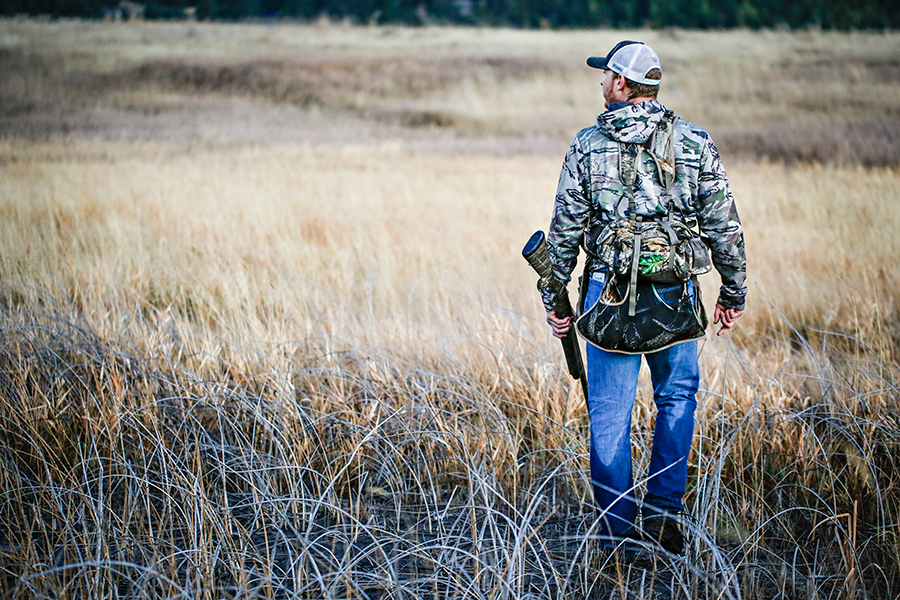Master Hunting Program Offers Kalispell Course in 2021
The Bozeman-based nonprofit is expanding classes for advanced hunters to teach skills, conservation and landowner relationships; applications close at end of November
By Maggie Dresser
After hunting in the Flathead Valley for 14 years since moving to the area in 2001, Jenn Mayrand took a Montana Master Hunting course in Helena last year to learn more about her sport and become a better hunter.
While she achieved her goal of improving her hunting skills, she is also now part of the Montana Fish, Wildlife and Parks Region 1 Citizen Advisory Committee, donates 2% of her business proceeds to conservation through her jewelry company, Badass Babes, and makes it a priority to have open dialogue and communication about hunting with the community.
“(The program) totally inspired me in ways that I had not anticipated,” Mayrand said.
The Master Hunting Program, a course led by One Montana, a nonprofit based out of Bozeman, offers an advanced hunter education program with a focus on conservation and landowner and hunter relationships. Course instructors include conservationists, wildlife biologists and wildlife managers, with 165 graduates since it began in 2018.
The course includes 60 hours of classroom time, online instruction and fieldwork over a two-weekend format. Fieldwork covers shooting accuracy, hunting skills and ethics and meetings with landowners and conservationists. More than 200,000 acres has been opened up to hunting access because of the program, and it’s created a network of likeminded people.
“We really help to facilitate those relationships by giving graduates firsthand opportunities to work hand in hand with landowners,” Lead Instructor Everett Headley said.
With a history of rifts between landowners and sportsmen, the program provides education for students about the importance of bridging the gap between both parties.
“In Montana we have what seems to be this unnecessary division in hunting,” Headley said. “Either you’re private land or you’re public land and the reality is we need both.”
The program also works closely with experts in the hunting and conservation world, including wildlife conservationists, invasive species experts and chronic wasting disease experts.
“We try to have a well-rounded program that helps expose students to a lot of different elements,” Headley said.
With classes in Bozeman, Great Falls, Miles City and the Flathead for 2021, the course draws hunters from all areas of the state. And while the program curriculum is standard in each location, instructors also tailor certain aspects of the program to its geographical location. The Flathead Valley, for example, has deep snow, thick forests and a higher grizzly bear population than other areas in the state.
“If you’re going to hunt in the Kalispell area, it’s going to be much different than if you’re hunting over in Glasgow,” Headley said. “You have some unique elements to Region 1 with a lot of timberland that’s open to the public, so that’s definitely impactful to hunting. I think Weyerhaeuser and Southern Pines have been good neighbors, and I think that’s a really strong statement about how private companies can be good neighbors and work with the public.”
While the course is designed for the advanced hunter and includes prerequisites, like a minimum of three years hunting experience, it attracts sportsmen and women with a wide range of experience and backgrounds. Headley says the program has had graduates who have only been hunting for a few years along with an 83-year-old hunter who has been hunting since he was a kid. Roughly 25% of the participants are women.
“There’s a richness to diversity,” Headley said. “Someone who’s had experience who has the desire to be a lifelong learner and to fill in holes they didn’t know they had or maybe sharpen the skills to go further.”
For Mayrand, she now feels a responsibility to keep an open dialogue with other hunters and community members after taking the course. She volunteered to be a regional coordinator for the Kalispell course in 2021 and she now hopes to educate and talk to legislators about hunting and conservation in Region 1 since she joined the FWP Citizen Advisory Committee.
“Once you have more knowledge, you have more responsibility to help and educate and learn,” Mayrand said. “You have the responsibility for dialogue and education and the future.”
The Master Hunting Program will be offered in Bozeman in February, Great Falls in March, Kalispell in April and Miles City in May. Applications began on Oct. 1 and will run through Nov. 30.
The program cost is $375 with limited scholarships offered.
For more information, visit www.mtmasterhunter.com.